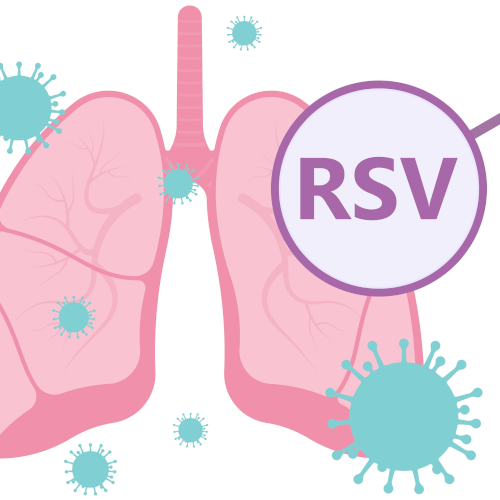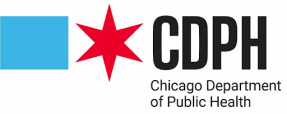RSV Home


Respiratory syncytial virus, or RSV, is a common respiratory virus that infects the nose, throat, and lungs. RSV symptoms make it difficult to distinguish it from the common cold or other respiratory viruses (like the flu or COVID-19). RSV spreads in the fall and winter along with other respiratory viruses. It usually peaks in December and January. There is no treatment for RSV, but you can manage symptoms with over-the-counter medications.
About RSV
How RSV Spreads
RSV spreads through direct contact with the virus, such as droplets from another person’s cough or sneeze contacting your eyes, nose, or mouth. It can also be spread by touching a surface that has the virus on it, like a doorknob, and then touching your face before washing your hands.
RSV Symptoms
People infected with RSV usually show symptoms within 4 to 6 days after getting infected. Symptoms of RSV infection usually include:
- Runny nose
- Congestion
- Decrease in appetite
- Coughing
- Sneezing
- Fever
- Wheezing
In very young infants with RSV, their only symptoms may be irritability, decreased activity, and breathing difficulties.
RSV Vaccine
Vaccines are recommended to protect adults ages 60 years and older from severe RSV.
There are two immunizations recommended to protect infants from severe RSV: a maternal RSV vaccine (Pfizer's Abrysvo) given during pregnancy or an RSV antibody (Nirsevimab) given to infants after birth.
The RSV vaccine is not currently an annual vaccine, meaning eligible adults do not need to get a dose every RSV season.
People at Higher Risk
Infants, some young children, and older adults are at an increased risk of severe RSV. Infants and older adults are more likely to develop severe RSV and need hospitalization. CDC recommends immunizations to protect these individuals.
RSV Season
In most regions of the United States and other areas with similar climates, RSV season generally starts during fall and peaks in the winter. The timing and severity of RSV season in a given community can vary from year to year.
Over the course of each fall and winter respiratory virus season, RSV reaches all corners of the continental United States. For these reasons, it is important to be aware of local RSV activity in your area.
How to Stop the Spread of RSV
- Practice good hygiene by covering your coughs and sneezes, washing or sanitizing your hands often, and cleaning frequently touched surfaces.
- Get vaccinated for the flu and get up to date on COVID-19 vaccines.
- Talk to your child's doctor to learn if your child is able to receive RSV prevention medication.
- Take steps for cleaner air, such as bringing in fresh outside air, purifying indoor air, or gathering outdoors.
Learn more: https://www.cdc.gov/rsv/causes/index.html




